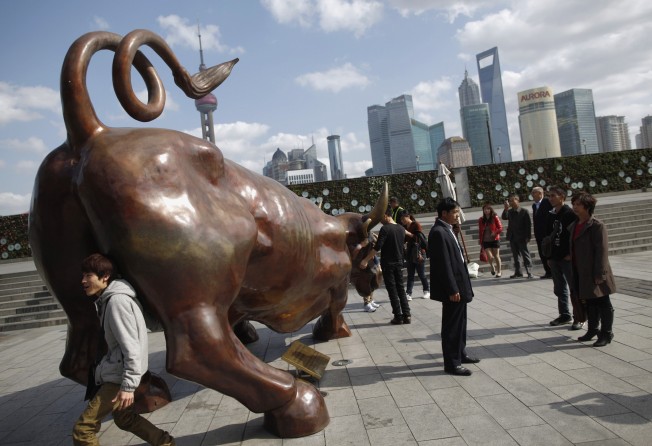
Share sales seen as way to ease debt burden
Partial divestment of government stakes in state-owned firms an option, analysts say

The mainland's swelling local-government debt is spurring speculation that authorities could sell some of their holdings of listed shares, estimated by UBS to total at least 5 trillion yuan (HK$6.3 trillion) to make repayments.

Local governments had already made some sales over the past two years and repayment pressures mean that more were likely, said Chen Li, a Shanghai-based analyst at UBS.
Officials have the option of turning to the stakes as income from land sales falls and a forthcoming national audit, the broadest in two years, put a spotlight on regional borrowing.
Local-government funding was ranked as most in need of reforms, according to a survey of analysts ahead of a key Communist Party meeting this month to discuss economic policies.
"Local governments have various entities and agencies, from pension management bureaus to state-owned asset supervision bodies, to hold shares," Yao said. "One thing is for sure - the number is in the trillions," said Yao, who estimated the stockpile at 3 trillion yuan as of 2011.
The National Audit Office has submitted its report on local-government debt to the State Council and the level of borrowings exceeds 14 trillion yuan, Caijing reported this week on its website.
Divestment of government shares was a long-term process and would not be conducted in a "big bang" way, Yao said.
"If local governments come out and announce big share-sale plans, it will send jitters through retail investors and cause stock prices to plunge," she said.
In Tokyo, the Bank of Japan yesterday stuck with its campaign of unprecedented monetary easing, with governor Haruhiko Kuroda's board pledging to maintain a vow to expand the monetary base by 60 to 70 trillion yen (HK$5.5 trillion) a year.